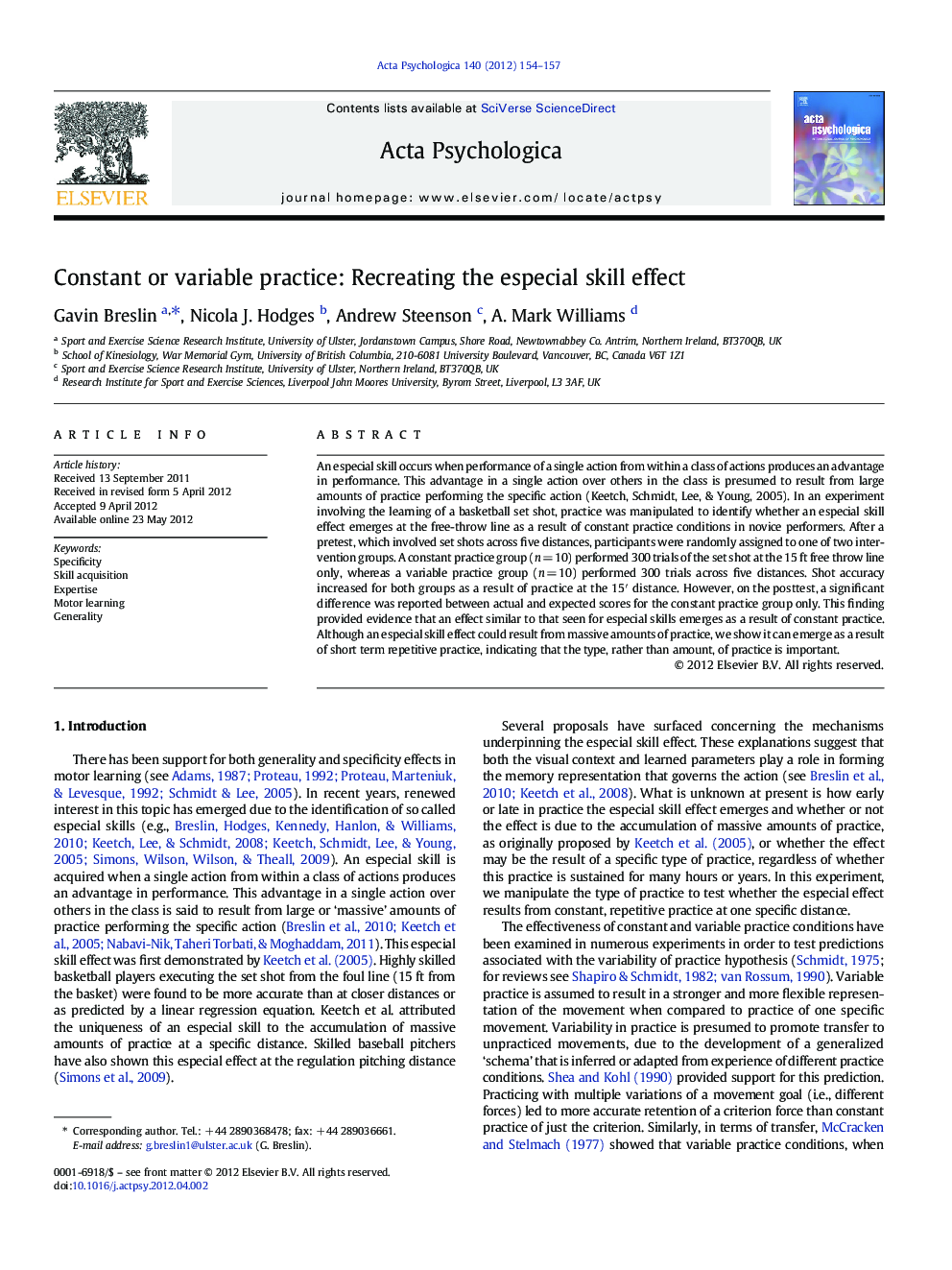| Article ID | Journal | Published Year | Pages | File Type |
|---|---|---|---|---|
| 920011 | Acta Psychologica | 2012 | 4 Pages |
An especial skill occurs when performance of a single action from within a class of actions produces an advantage in performance. This advantage in a single action over others in the class is presumed to result from large amounts of practice performing the specific action (Keetch, Schmidt, Lee, & Young, 2005). In an experiment involving the learning of a basketball set shot, practice was manipulated to identify whether an especial skill effect emerges at the free-throw line as a result of constant practice conditions in novice performers. After a pretest, which involved set shots across five distances, participants were randomly assigned to one of two intervention groups. A constant practice group (n = 10) performed 300 trials of the set shot at the 15 ft free throw line only, whereas a variable practice group (n = 10) performed 300 trials across five distances. Shot accuracy increased for both groups as a result of practice at the 15′ distance. However, on the posttest, a significant difference was reported between actual and expected scores for the constant practice group only. This finding provided evidence that an effect similar to that seen for especial skills emerges as a result of constant practice. Although an especial skill effect could result from massive amounts of practice, we show it can emerge as a result of short term repetitive practice, indicating that the type, rather than amount, of practice is important.
► We explored the especial skill effect under varying practice conditions. ► An especial skill effect emerged as a result of constant practice. ► Massive amounts of practice were not required for the especial skill effect to emerge.
